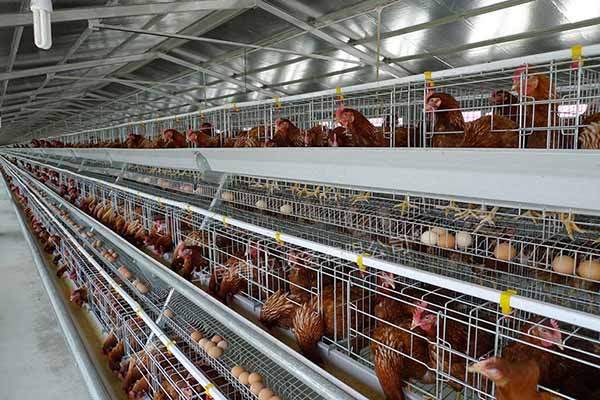Kenya Chicken Farm Automated Disinfection Equipment Recommendation
Time : 2025-06-29
Automated disinfection equipment plays a crucial role in maintaining a clean and hygienic environment in poultry farms, particularly in Kenya where the poultry industry is rapidly growing. This article aims to provide a comprehensive recommendation for automated disinfection equipment suitable for chicken farms in Kenya. By integrating professional knowledge of poultry equipment, we will explore the key factors to consider when selecting the right automated disinfection system for your farm.
Introduction to Chicken Farm Disinfection
Disinfection is an essential practice in poultry farming to prevent the spread of diseases and maintain the health of the flock. In Kenya, where the poultry industry is susceptible to various pathogens, implementing an effective disinfection program is vital. Automated disinfection systems offer several advantages over traditional manual methods, such as increased efficiency, reduced labor costs, and consistent application.
Key Factors to Consider When Choosing Automated Disinfection Equipment
1. Type of Disinfectant
The first step in selecting automated disinfection equipment is to determine the type of disinfectant that will be used. In Kenya, some popular disinfectants include quaternary ammonium compounds, iodophors, and hydrogen peroxide. It is crucial to choose a disinfectant that is effective against the specific pathogens prevalent in the region.
2. Application Method
There are several methods of applying disinfectants, including spray, immersion, fogging, and ultrasonic. Each method has its advantages and disadvantages, and the choice depends on the layout of the chicken farm and the specific requirements of the farm’s biosecurity program.
– Spray: Suitable for treating surfaces and equipment. It requires less disinfectant than immersion methods and is less labor-intensive than fogging.
– Immersion: Ideal for equipment and areas that can be submerged in a solution. However, it is not suitable for all surfaces and may require a longer drying time.
– Fogging: Effective for treating air and dust, but can be more expensive due to the high consumption of disinfectant and the need for specialized equipment.
– Ultrasonic: Uses ultrasonic waves to disperse the disinfectant in water, creating a fine mist. This method is efficient for treating areas with difficult-to-reach surfaces.
3. Capacity and Coverage Area
When selecting automated disinfection equipment, it is essential to consider the farm’s size and the number of areas that need to be disinfected. Ensure that the equipment can cover the entire farm, including chicken houses, feeders, waterers, and other equipment.
4. Automation and Control Features
Automated disinfection systems should have features that allow for easy operation and control. Look for systems with programmable timers, remote control options, and user-friendly interfaces. These features ensure that the disinfection process is consistent and meets the farm’s biosecurity requirements.
5. Energy Efficiency and Maintenance Requirements
Consider the energy consumption of the equipment and the maintenance requirements. Efficient equipment can help reduce operating costs, while regular maintenance is crucial for ensuring the longevity and effectiveness of the system.
Recommendations for Automated Disinfection Equipment in Kenya Chicken Farms
1. Aquadispray 3000
The Aquadispray 3000 is an automated spray system suitable for treating surfaces and equipment. It offers adjustable spray patterns and is equipped with a built-in tank for storing disinfectant. This system is ideal for farms of all sizes and can be easily integrated into the farm’s biosecurity program.
2. MistKing 4000
The MistKing 4000 is a high-capacity fogger that is perfect for large chicken farms in Kenya. It produces a fine mist that can effectively treat air and dust. The system is easy to operate and has a remote control, making it convenient for use in chicken houses and other difficult-to-reach areas.
3. Ultrasonic Disinfection System
For farms looking for a more innovative approach to disinfection, an ultrasonic disinfection system could be a great investment. This system uses ultrasonic waves to disperse the disinfectant in water, creating a fine mist that can reach all surfaces, including those in hard-to-reach areas.
Conclusion
Implementing an automated disinfection system in your Kenya chicken farm is a crucial step in maintaining a healthy and productive flock. By considering the key factors mentioned in this article, you can make an informed decision when selecting the right disinfection equipment for your farm. Remember, a well-designed disinfection program not only protects your chickens from diseases but also ensures the safety of your employees and the quality of your products.
Tags












